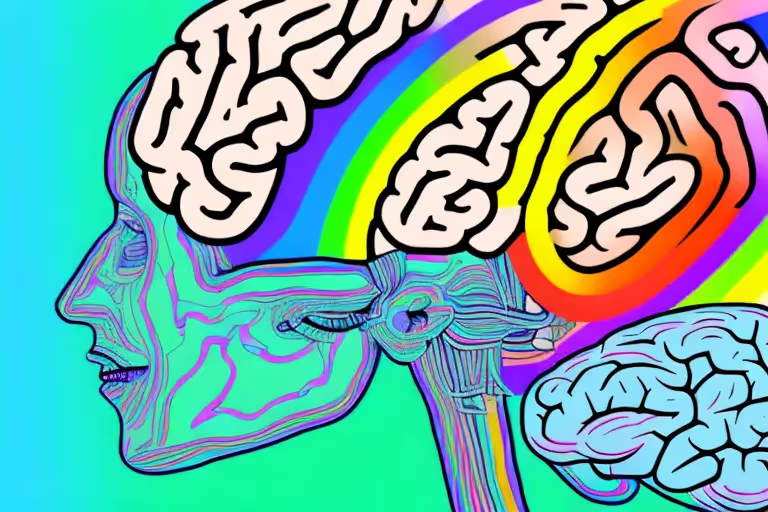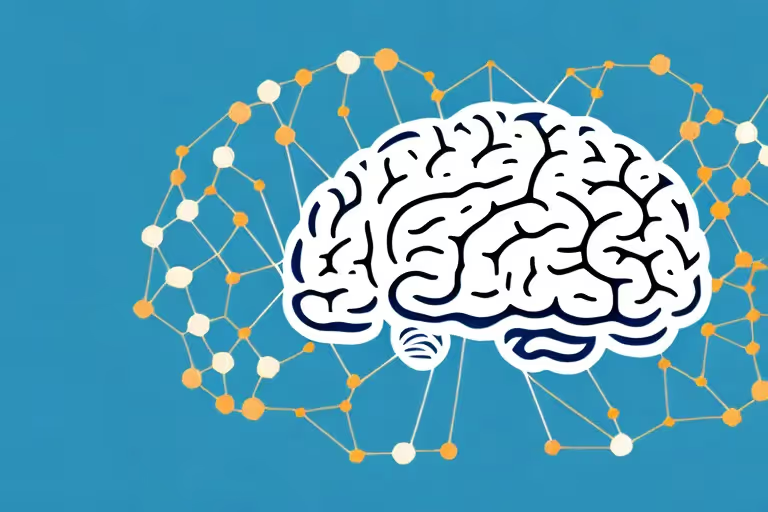Schizoaffective disorder is a complex mental health condition that often goes misunderstood or misdiagnosed. This guide provides comprehensive insight into the nature of this disorder, its symptoms, causes, diagnosis, treatment and resources available for individuals living with the condition. Our understanding of schizoaffective disorder is crucial, not only to demystify the disorder but also to improve its management.
What is Schizoaffective Disorder?
Definition and Overview
Schizoaffective disorder is a chronic mental health condition characterized by symptoms of schizophrenia, such as hallucinations or delusions, and symptoms of a mood disorder, like mania or depression. This combination makes it a unique and challenging disorder to manage.
Living with schizoaffective disorder can be a complex experience. Individuals with this condition often struggle with finding a balance between their thoughts, emotions, and behavior. The symptoms can vary in intensity and frequency, leading to difficulties in daily functioning and maintaining relationships.
Although less common than other mental health disorders, schizoaffective disorder significantly impacts a person's life. The exact prevalence of schizoaffective disorder differs among sources, but generally, it is considered to affect less than 1% of the population.
People with schizoaffective disorder may experience periods of stability where their symptoms are well-managed, followed by episodes of exacerbation. These episodes can be distressing and disruptive, requiring ongoing support and treatment.
Common Misconceptions
Due to its complexity and relative rarity, numerous misconceptions surround schizoaffective disorder. One of the most prevalent is conflating it with schizophrenia or bipolar disorder, due to the presence of similar symptoms. However, these are distinct conditions with different diagnostic criteria.
It is important to understand that schizoaffective disorder is not simply a combination of schizophrenia and bipolar disorder. While there may be overlapping symptoms, the diagnosis of schizoaffective disorder requires specific criteria to be met.
Another misconception is that people with schizoaffective disorder are dangerous or violent. Contrarily, individuals with the disorder are frequently victims rather than perpetrators of violence and need understanding and support.
Stereotyping and stigmatization can further isolate individuals with schizoaffective disorder, making it harder for them to seek help and receive the support they need. It is crucial to challenge these misconceptions and promote a more compassionate and informed understanding of this complex condition.
Supporting individuals with schizoaffective disorder involves providing access to appropriate mental health services, fostering a supportive community, and promoting education about the condition to reduce the stigma surrounding it.
Aura has the world’s largest and best collection of Meditations and hundreds of Coaches to choose from.
Try it Free!
Symptoms of Schizoaffective Disorder
Psychotic Symptoms
Psychotic symptoms involve loss of contact with reality. This category includes hallucinations, delusions, and disorganized thoughts. People with schizoaffective disorder may see, hear or believe things that are not real, with these experiences often feeling very real to them.
For example, a person with schizoaffective disorder may experience auditory hallucinations, hearing voices that are not there. These voices can be benign or malevolent, offering guidance, making comments, or even issuing commands. The individual may also have visual hallucinations, seeing people or objects that do not actually exist. These visual hallucinations can range from subtle distortions to vivid and lifelike images.
In addition to hallucinations, delusions are another common psychotic symptom of schizoaffective disorder. Delusions are firmly held beliefs that are not based in reality. For instance, a person with this disorder may believe that they are being followed, spied on, or targeted by a secret organization. These delusions can be highly distressing and may lead to paranoia and feelings of persecution.
Furthermore, individuals with schizoaffective disorder often experience disorganized thoughts. This can make it difficult for them to concentrate, speak coherently, or complete tasks. Their thoughts may jump from one unrelated topic to another, making it challenging for them to follow a logical train of thought or engage in meaningful conversations.
Moreover, negative symptoms, such as lack of motivation or social withdrawal, are also sometimes exhibited by individuals with schizoaffective disorder. They may lose interest in activities they once enjoyed, experience a decline in personal hygiene, and have difficulty initiating and maintaining relationships. These negative symptoms can significantly impact their quality of life and ability to function in daily activities.
Mood Disorder Symptoms
In addition to the psychotic symptoms, individuals with schizoaffective disorder also manifest symptoms of a mood disorder. This includes periods of mania or depression. The former is characterized by grandiosity, decreased need for sleep, and reckless behavior.
During manic episodes, individuals with schizoaffective disorder may feel an intense surge of energy and euphoria. They may engage in impulsive and risky behaviors, such as excessive spending, reckless driving, or engaging in unprotected sex. Their thoughts may race, making it difficult for them to focus or sit still. They may also have an inflated sense of self-importance, believing they possess special powers or abilities.
On the other hand, depressive episodes in schizoaffective disorder are marked by persistent feelings of sadness, hopelessness, and a loss of interest in activities. Individuals may experience changes in appetite and sleep patterns, often experiencing either significant weight loss or gain. They may have difficulty concentrating, making decisions, and may even have thoughts of self-harm or suicide.
Living with schizoaffective disorder can be challenging, as individuals navigate between these periods of extreme mood swings and psychosis. It is important for them to receive appropriate treatment and support to manage their symptoms and improve their overall well-being.
Causes and Risk Factors
Schizoaffective disorder is a complex mental health condition that is influenced by various causes and risk factors. Understanding these factors is crucial for a comprehensive understanding of the disorder and its development.
Genetic Factors
Research has shown that genetic factors play a significant role in the risk of developing schizoaffective disorder. Twin and family studies have consistently demonstrated that individuals with a close relative who has schizoaffective disorder, schizophrenia, or bipolar disorder are more likely to develop the condition themselves. This suggests a hereditary component that contributes to the vulnerability to schizoaffective disorder.
Genetic predisposition to schizoaffective disorder involves a complex interplay of multiple genes. Researchers have identified specific gene variations that are associated with an increased risk of developing the disorder. These genes are involved in various biological processes, including neurotransmitter regulation, brain development, and immune system functioning.
It is important to note that while genetics play a role, they do not solely determine the development of schizoaffective disorder. Other factors, such as environmental influences, also contribute to the onset and progression of the condition.
Environmental Factors
In addition to genetic factors, environmental influences also play a significant role in the development of schizoaffective disorder. Various environmental factors can interact with genetic predisposition, increasing the risk of developing the condition.
Prenatal exposure to viral infections has been identified as a potential environmental risk factor for schizoaffective disorder. Studies have shown that certain viral infections during pregnancy, such as influenza or rubella, can disrupt normal fetal brain development and increase the likelihood of developing the disorder later in life.
Early childhood adversity, such as trauma, neglect, or abuse, has also been linked to an increased risk of schizoaffective disorder. These adverse experiences can have long-lasting effects on brain development and functioning, potentially contributing to the development of psychiatric disorders.
Substance abuse, particularly during adolescence or early adulthood, is another environmental factor that can influence the onset of schizoaffective disorder. Drug use, including cannabis, amphetamines, and hallucinogens, has been associated with an increased risk of developing the disorder. Substance abuse can disrupt brain chemistry and increase the vulnerability to psychiatric conditions.
It is important to note that while these environmental factors are associated with an increased risk of schizoaffective disorder, not everyone exposed to these factors will develop the condition. The interaction between genetic predisposition and environmental influences is complex and multifaceted, requiring further research to fully understand the mechanisms involved.
In conclusion, schizoaffective disorder is influenced by a combination of genetic and environmental factors. Understanding these causes and risk factors is crucial for early detection, prevention, and the development of effective treatment strategies for individuals affected by this complex mental health condition.
Diagnosing Schizoaffective Disorder
Schizoaffective disorder is a complex mental health condition that requires a comprehensive evaluation to reach a diagnosis. Physicians and mental health professionals follow the criteria outlined by the Diagnostic and Statistical Manual of Mental Disorders (DSM-5) to accurately diagnose schizoaffective disorder.
Diagnostic Criteria
The diagnostic process for schizoaffective disorder involves a thorough evaluation of symptoms, psychiatric history, and family history of mental health disorders. The DSM-5 provides specific criteria that must be met for a diagnosis of schizoaffective disorder to be made.
These criteria include:
- Presence of major mood episodes: To be diagnosed with schizoaffective disorder, an individual needs to exhibit periods of uninterrupted illness during which there is a major mood episode. This can include episodes of mania, depression, or a mix of both.
- Concurrent presence of psychotic symptoms: In addition to major mood episodes, individuals with schizoaffective disorder also experience symptoms that meet criterion A for Schizophrenia. These symptoms can include delusions, hallucinations, disorganized thinking, and abnormal motor behavior.
- Duration of symptoms: The symptoms of schizoaffective disorder must be present for a significant portion of the time during the illness, with a minimum duration of two weeks.
- Exclusion of other causes: It is important to rule out other potential causes of the symptoms, such as substance abuse, medical conditions, or other mental health disorders.
By carefully evaluating these criteria, mental health professionals can accurately diagnose schizoaffective disorder and develop an appropriate treatment plan tailored to the individual's needs.
Differentiating from Other Mental Health Disorders
Distinguishing schizoaffective disorder from other mental health conditions can be challenging, as there may be overlapping symptoms. However, there are key factors that help differentiate schizoaffective disorder from other disorders.
One of the primary factors is the presence of mood symptoms concurrent with psychotic symptoms. Unlike other mental health disorders, individuals with schizoaffective disorder experience both mood episodes and psychotic symptoms. This combination sets schizoaffective disorder apart from conditions like schizophrenia, bipolar disorder, and major depressive disorder.
Additionally, the duration and severity of symptoms play a crucial role in distinguishing schizoaffective disorder. The presence of major mood episodes and psychotic symptoms for a significant portion of the time during the illness is a key characteristic of schizoaffective disorder.
Furthermore, mental health professionals take into account the individual's psychiatric history and family history of mental health disorders when making a diagnosis. Understanding the context of the individual's symptoms and their familial predisposition to mental health conditions helps in accurately differentiating schizoaffective disorder from other disorders.
Overall, the diagnostic process for schizoaffective disorder involves a careful evaluation of symptoms, psychiatric history, and family history. By considering the specific criteria outlined in the DSM-5 and differentiating from other mental health disorders, mental health professionals can make an accurate diagnosis and provide appropriate treatment and support for individuals with schizoaffective disorder.
Treatment Options for Schizoaffective Disorder
Schizoaffective disorder is a complex mental health condition that requires a comprehensive treatment approach. While medications are often a cornerstone of treatment, there are also other important interventions that can help individuals manage their symptoms and improve their overall quality of life.
Medication Treatments
Pharmacological intervention is a crucial component of schizoaffective disorder treatment. Antipsychotic medications are commonly prescribed to help manage psychotic symptoms such as hallucinations and delusions. These medications work by blocking dopamine receptors in the brain, reducing the intensity of these symptoms.
In addition to antipsychotics, mood stabilizers may also be prescribed to help regulate mood swings and prevent manic or depressive episodes. These medications can help individuals achieve a more stable emotional state and reduce the risk of relapse.
Furthermore, antidepressants may be prescribed to address symptoms of depression that often co-occur with schizoaffective disorder. These medications can help alleviate feelings of sadness, hopelessness, and low energy.
It is important to note that the choice of medication depends on various factors, including the nature of symptoms, side effect profiles, and the individual's response to medication. Close monitoring by a healthcare professional is essential to ensure the effectiveness and safety of the prescribed medications.
Psychotherapy and Counseling
While medications are crucial, they are not the only treatment option for schizoaffective disorder. Psychotherapy, in combination with medication, can significantly enhance the overall treatment outcomes.
Cognitive-behavioral therapy (CBT) is one type of psychotherapy that has shown promise in the treatment of schizoaffective disorder. CBT helps individuals identify and change thought patterns that contribute to dysfunctional behavior. By challenging negative beliefs and replacing them with more realistic and positive ones, individuals can learn to manage their symptoms more effectively and improve their overall functioning.
In addition to CBT, other forms of therapy, such as family therapy and psychoeducation, can also be beneficial. Family therapy involves the participation of family members or loved ones in the treatment process. It aims to improve communication, enhance understanding, and provide support to both the individual with schizoaffective disorder and their family members.
Psychoeducation is another essential component of treatment. It involves providing individuals and their families with information about schizoaffective disorder, its symptoms, treatment options, and strategies for managing the condition. By increasing knowledge and awareness, psychoeducation empowers individuals to take an active role in their own care and make informed decisions about their treatment.
Lifestyle Changes and Self-Care
Besides pharmacological and therapeutic interventions, lifestyle modifications play a significant role in managing schizoaffective disorder. Making positive changes in daily habits and self-care practices can contribute to overall well-being and symptom management.
Regular exercise has been shown to have numerous benefits for mental health. Engaging in physical activity, such as walking, jogging, or participating in sports, can help reduce anxiety, improve mood, and increase overall resilience. It is important to find activities that are enjoyable and sustainable for the individual.
Adopting a balanced and nutritious diet is also crucial for individuals with schizoaffective disorder. Certain nutrients, such as omega-3 fatty acids found in fish, have been associated with better mental health outcomes. Avoiding excessive caffeine and alcohol consumption is also recommended, as these substances can exacerbate symptoms and interfere with medication effectiveness.
Adequate sleep is essential for maintaining mental health. Establishing a regular sleep schedule, practicing relaxation techniques before bed, and creating a comfortable sleep environment can help improve sleep quality. It is important to prioritize sleep and seek professional help if experiencing persistent sleep difficulties.
Lastly, stress management techniques are vital for individuals with schizoaffective disorder. Engaging in activities that promote relaxation, such as meditation, deep breathing exercises, or engaging in hobbies, can help reduce stress levels and improve overall well-being. It is also important to establish healthy boundaries, practice effective time management, and seek support from loved ones or support groups when needed.
In conclusion, the treatment of schizoaffective disorder involves a multi-faceted approach that includes medication treatments, psychotherapy and counseling, as well as lifestyle changes and self-care practices. By combining these various interventions, individuals with schizoaffective disorder can effectively manage their symptoms, improve their overall functioning, and lead fulfilling lives.
Living with Schizoaffective Disorder
Coping Strategies
Living with schizoaffective disorder can be challenging, but effective coping strategies can make a huge difference. These include staying on prescribed medication, attending therapy sessions, building a strong support network, and developing health-promoting habits.
Support Systems
Having a robust support system is essential for managing schizoaffective disorder. This may include professional mental health support, friends, family, or support groups.
Resources and Support for Individuals with Schizoaffective Disorder
National and Local Organizations
Several national and local organizations offer resources for those living with schizoaffective disorder and their families. Organizations like the National Alliance on Mental Illness (NAMI) provide education, advocacy, and support to individuals and family members dealing with mental illnesses such as schizoaffective disorder.
Online Communities and Forums
Online communities also offer invaluable support and provide a platform for people to share experiences, learn from each other, and break the isolation often associated with the disorder.
Conclusion: The Importance of Understanding Schizoaffective Disorder
The understanding of schizoaffective disorder is not only crucial for the individuals affected but also for their families and caregivers. By gaining knowledge and awareness of this condition, we can combat misconceptions, improve treatment strategies, and enhance the lives of those living with the disorder.
Lastly, as a helpful resource, consider the Aura Health App. This easy-to-use app provides a range of resources for mental health, from meditations and stories to life coaching sessions and music. It aims to provide a guiding hand to everyone on their mental health journey, including those living with conditions such as schizoaffective disorder.
Aura is Your All In One App for Meditation, Mindfulness Wellbeing
Find peace every day with one app for your whole well-being. There is no one-size-fits-all solution to mental well-being. Aura is the first all-in-one wellness app that learns how to best help you. Discover an endless library of expert-created tracks for your well-being, all taught by the world’s best coaches, therapists, and storytellers. With Aura's personalized recommendations, you can find peace every morning, day and night.



.webp)






.avif)

%20(1).avif)


.avif)
.avif)
.webp)


.avif)


















































































































.avif)

















.svg)









